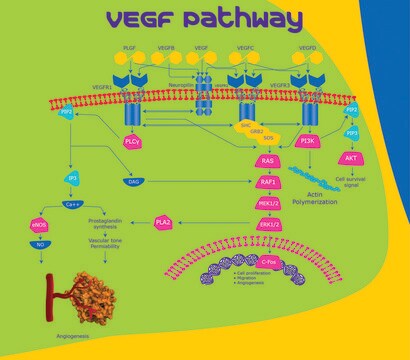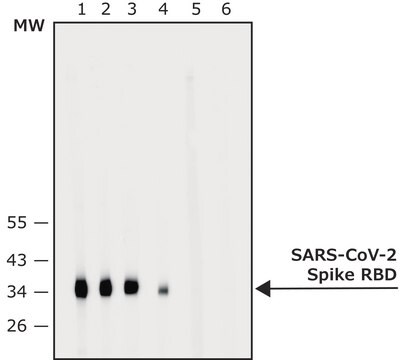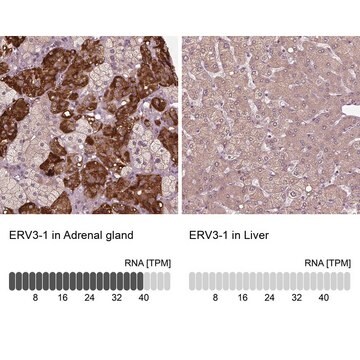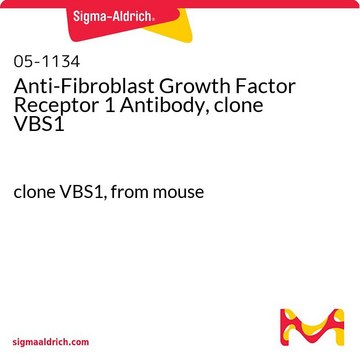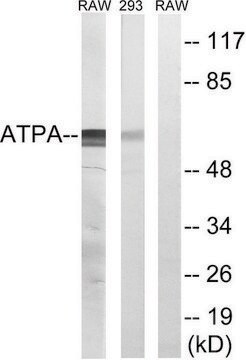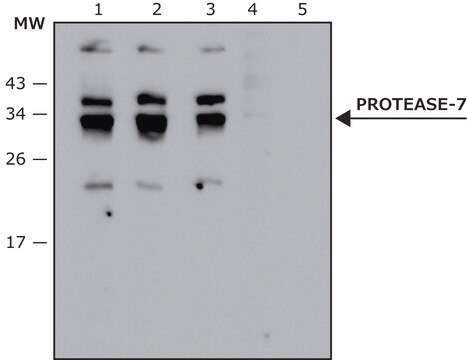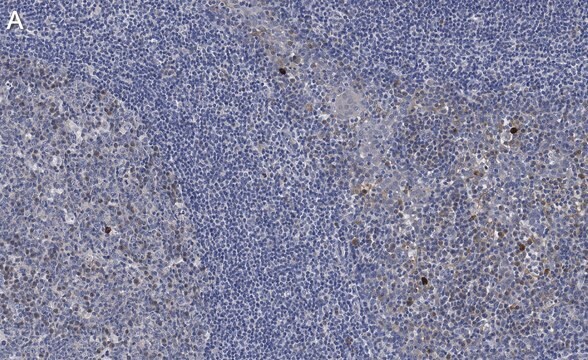SRP4743
PLGF from mouse
recombinant, expressed in E. coli, ≥95% (SDS-PAGE), ≥95% (HPLC)
Sinonimo/i:
PGF, PIGF
Autenticatiper visualizzare i prezzi riservati alla tua organizzazione & contrattuali
About This Item
Prodotti consigliati
Origine biologica
mouse
Ricombinante
expressed in E. coli
Saggio
≥95% (HPLC)
≥95% (SDS-PAGE)
Stato
lyophilized
PM
~32.6 kDa
Confezionamento
pkg of 10 μg
Condizioni di stoccaggio
avoid repeated freeze/thaw cycles
Impurezze
endotoxin, tested
N° accesso NCBI
Condizioni di spedizione
wet ice
Temperatura di conservazione
−20°C
Informazioni sul gene
mouse ... Pgf(18654)
Descrizione generale
PLGF (also called Placenta Growth Factor, PIGF, PGF) is an angiogenic factor that belongs to the cysteine-knot superfamily of growth factors. PLGF is expressed in placental tissues, colon and mammary carcinomas. It signals through the VEGFR-1/FLT1 receptor and stimulates endothelial cell proliferation and migration. Recombinant mouse PLGF is a disulfide-linked homodimer containing two 142 amino acid polypeptide chains.
Stato fisico
Sterile filtered and lyophilized with no additives.
Ricostituzione
Centrifuge the vial prior to opening. Avoid freeze-thaw cycles.
Reconstitute the protein in sterile 20 mM acetic acid to a concentration of 0.1-1.0 ug/ul. The solution can then be diluted into other aqueous buffer.
Codice della classe di stoccaggio
11 - Combustible Solids
Classe di pericolosità dell'acqua (WGK)
WGK 3
Punto d’infiammabilità (°F)
Not applicable
Punto d’infiammabilità (°C)
Not applicable
Scegli una delle versioni più recenti:
Certificati d'analisi (COA)
Lot/Batch Number
Non trovi la versione di tuo interesse?
Se hai bisogno di una versione specifica, puoi cercare il certificato tramite il numero di lotto.
Possiedi già questo prodotto?
I documenti relativi ai prodotti acquistati recentemente sono disponibili nell’Archivio dei documenti.
Zanfeng Wang et al.
Molecular and cellular biochemistry, 439(1-2), 163-169 (2017-09-02)
Vascular endothelial growth factor (VEGF) family members play critical and complex roles in the regulation of cancer vascularization and metastasis. The exact molecular control of lung cancer metastasis by VEGF family members is not completely understood. Here, we showed that
Changjun He et al.
Cellular physiology and biochemistry : international journal of experimental cellular physiology, biochemistry, and pharmacology, 47(6), 2534-2543 (2018-07-11)
Assistance with tumor-associated vascularization is needed for the growth and invasion of non-small cell lung cancer (NSCLC). Recently, it was shown that placental growth factor (PLGF) expressed by NSCLC cells had a critical role in promoting the metastasis of NSCLC
Huaifeng Li et al.
Cancer science, 109(5), 1532-1544 (2018-03-27)
Gallbladder cancer (GBC) is the most common malignant tumor of the biliary tract system. Epithelial-mesenchymal transition (EMT) plays a vital role in the process of tumor metastasis. Mesenchymal-like cells can serve as a source of cancer stem cells, which can
Xu Zhou et al.
Scientific reports, 5, 10071-10071 (2015-05-12)
Cancer neovascularization plays an essential role in the metastasis of larynx carcinoma (LC). However, the underlying molecular mechanisms are not completely understood. Recently, we reported that placental growth factor (PLGF) regulates expression of matrix metalloproteinase 3 (MMP3) through ERK/MAPK signaling
Il team dei nostri ricercatori vanta grande esperienza in tutte le aree della ricerca quali Life Science, scienza dei materiali, sintesi chimica, cromatografia, discipline analitiche, ecc..
Contatta l'Assistenza Tecnica.

